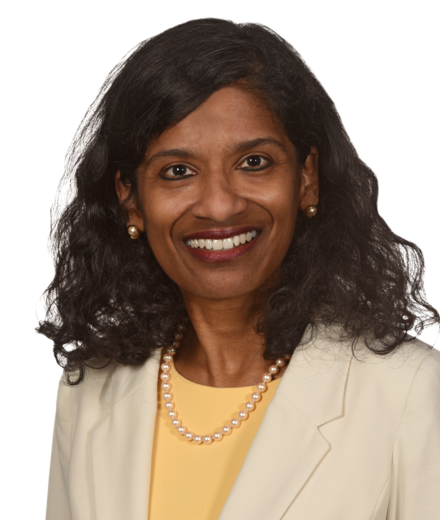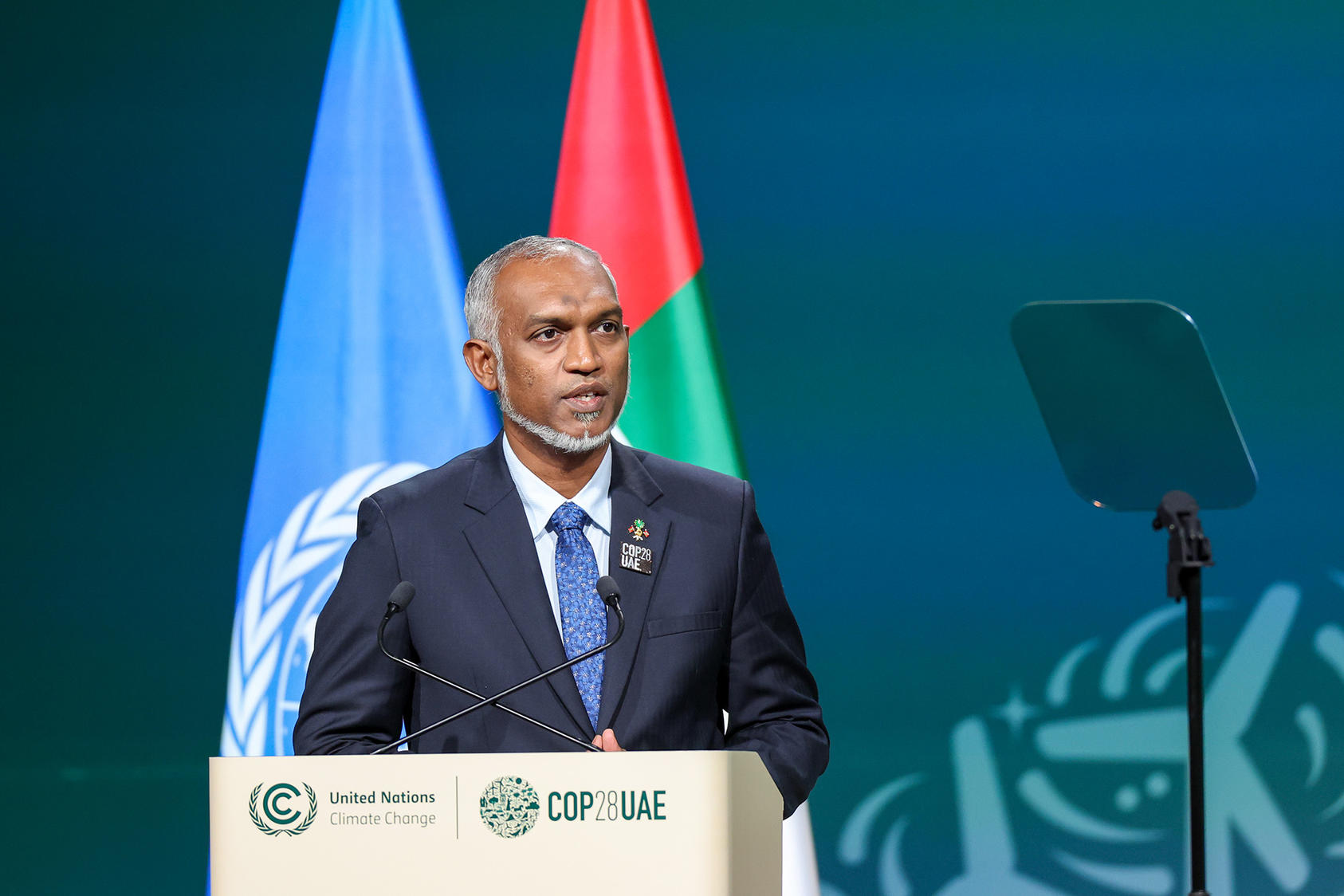Even as Muizzu wants India’s military presence out, he leaves the door open for continued security and development assistance.


What were the main priorities and issue areas that President Muizzu ran on during his campaign?
Dr. Mohamed Muizzu ran as a presidential candidate because former president Abdulla Yameen was in prison. As a result, Muizzu picked up the mantle for the controversial “India Out” campaign. This effort has its origins in Yameen’s deteriorating relationship with India, especially toward the end of his administration, which he subsequently built into a political opposition campaign.
Now in office, Muizzu has emphasized that his top priority concerns Maldives’ relations with India and following through on his campaign pledge to seek the withdrawal of India’s security presence in Maldives. Regarding domestic policy, Muizzu has promised to increase the availability and affordability of housing, especially in the Greater Malé area.
The president appears eager to deliver on his campaign promises by rolling out a plan to demonstrate progress by the end of his first 100 days in office. Assuming this approach is sustained, observers should expect to see a progress report by 14 weeks into the Muizzu administration.
How have countries in the region responded to his election?
India’s prime minister, Narendra Modi, sent congratulatory messages to President-elect Muizzu on social media and through India’s high commissioner. Although in 2018 Modi was the only head of government to participate in Ibrahim Mohamed Solih’s inauguration, he selected Kiren Rijiju, minister of earth sciences and a member of Parliament from Arunachal Pradesh, to represent India at Muizzu’s inauguration. Sri Lanka’s president, Ranil Wickremesinghe, was the only head of state in attendance, demonstrating close ties between Maldives and Sri Lanka as smaller South Asian neighbors. China sent Shen Yiqin, special envoy of the president and state councilor, to the inauguration. Chinese President Xi Jinping earlier sent a congratulatory message to Muizzu after his election, while China’s ambassador to Maldives met with him.
India’s government and media tracked the controversial presidential campaign with much concern about its implications for the bilateral relationship. As a result, New Delhi continues to watch closely how Muizzu will operate now that he is in office. His tone in statements has suggested a desire to work with India and that his request for withdrawal of India’s security presence is part of a larger foreign policy focus to maintain Maldives’ independence and not permit any foreign security presence — India’s or another country’s — on national soil.
Newly elected leaders of smaller South Asian countries usually visit India as their first overseas trip after entering office. Muizzu has previously discussed this tradition for Maldives’ leaders and his interest in maintaining the tradition. However, this assumes an invitation from India, and it is not evident that New Delhi has invited the new leader to visit. Based on meeting readouts from the President’s Office, the only countries that have officially invited Maldives’ new president for a bilateral visit are Sri Lanka and Turkey. Muizzu traveled to the latter on November 26 for his first official trip.
More broadly, there is a palpable sense of nationalism in discussions among Maldivian officials and experts in Malé that is aimed at preserving sovereignty, regardless of the size of actors involved. For instance, Maldives is focused on maintaining its autonomy and independence regarding not only India but also the smaller state of Mauritius. The new administration disputes the maritime boundary between the two countries that was demarcated by the International Tribunal for the Law of the Sea (ITLOS) in April 2023. Maldivians voice significant concerns about illegal fishing and depletion of this vital national resource within their country’s exclusive economic zone (EEZ). While Muizzu has stated that his top priority is the departure of Indian military personnel from Maldives, he has also identified appealing the binding ITLOS judgment as a priority within his first 100 days.
Notwithstanding the various domestic policy initiatives planned, such as housing projects and financing, the early period of Muizzu’s presidency will be closely watched overseas for key items of interest for Maldives’ international relations.
Maldives has increasingly had to navigate growing strategic competition in the Indo-Pacific, where it plays an important role as a small island state. How might Muizzu’s interest in closer ties with China and recent announcement that India’s military presence will be pushed out of Maldives impact maritime security in the Indo-Pacific?
Muizzu has made clear his intention to end Maldives’ hosting of India’s security personnel. This is a striking shift for Maldives. After deepening its security ties with India for the past 15 years, the country now wants to demonstrate greater independence in managing its defense operations. More broadly, this development reflects smaller South Asian and Indian Ocean island states’ heightened anxieties about managing their national priorities in an external environment of tensions between major powers.
At the same time, Muizzu has also stated that Maldives continues to need all countries’ assistance — including India’s — to meet its defense and economic development objectives. Indian officials have reportedly agreed to work with Maldives to identify “workable solutions” to Muizzu’s security request and confirmed their positive discussions on development cooperation, such as the Greater Malé Connectivity Project. In a recent interview, Muizzu elaborated that “India will continue to be our close friend” and that the two countries will have a “close relationship bilaterally on all the fronts.” He also emphasized their “historical ties” and that “India is our closest neighbor.”
Assuming Muizzu maintains this tone in the coming months, his statements suggest that observers should not view his high-profile decision as the end of Maldives and India working together on regional maritime security, but rather the end of the aerial security cooperation program that exists in its present form.
One implication of Muizzu’s election is that it would not be surprising if Maldives eventually seeks a new package of security assistance from India. India has expanded its own capabilities in the Indian Ocean and can provide much to smaller neighbors, while Maldives requires significant assistance due to its vast maritime area of responsibility and limited capacity. However, the terms need to be aligned with the new administration’s needs and preferences for delivery of such assistance. The provision of security cooperation is ultimately about the donor aligning with these requests. Another implication is that Muizzu’s election may represent an opportunity for India to demonstrate how its policies of Neighbourhood First and Security and Growth for All in the Region can be flexible and adapted in recipient countries across political administrations.
Regarding China, its maritime security assistance to Maldives has been minimal, especially compared with India’s contributions. For example, China transferred a sea ambulance to Maldives in 2018 after much delay. In contrast, India has offered training and education, exercises, coastal radars, sea and air platforms, and EEZ operations. More so than security assistance, Maldives will need China’s economic cooperation, including debt repayment, tourism and, possibly, a free trade agreement.
Beyond India, Japan has played a critical role in supporting Maldives’ maritime security that should not be overlooked. This support has included the Maldives Maritime Rescue Coordination Centre’s new building, oil spill response equipment, a marine pollution response vessel among other sea platforms and specialized maritime security training.
As a Small Island Developing State, Maldives will seek assistance from as many partners as possible to enable it to address the range of challenges it faces in the maritime domain and beyond.
What will be the key focus areas for U.S. policymakers under the new administration in the Maldives?
U.S. Agency for International Development (USAID) Administrator Samantha Power led the U.S. delegation to Muizzu’s inauguration. A USAID press release described “the growing partnership between the U.S. and Maldives on security, development, and global challenges such as climate change,” and Power’s social media post conveyed the United States’ “commitment to support transparency, economic diversification & climate resilience.” Highlighting the role of the administrator’s agency, Power announced the establishment of a permanent USAID country office in Maldives. Also visiting from Washington was Sarah Ladislaw, special assistant to the president and senior director for climate and energy at the National Security Council, thereby emphasizing the importance of Maldives’ climate security for the White House. Earlier this year, the State Department discussed its effort to seek funding from Congress for regional maritime security initiatives, plus current work on climate and food security. The President’s Office press release about the meeting between Muizzu and Power echoed similar themes.
More broadly, the United States was one of the first countries to recognize Maldives after independence and has engaged it in robust security cooperation. This has included exercises, logistics and maritime security capacity-building. In the past year, Maldives has dispatched an ambassador to Washington and reestablished its embassy here, while the United States dispatched its first-ever resident ambassador to Maldives. Washington’s allocation of resources for the new embassy and USAID presence are the latest indications that the United States wants to do more to develop its relationships in the Indian Ocean, as announced by then deputy secretary of state Wendy Sherman earlier this year.
The United States provides Maldives with an additional option as a smaller state seeking international partners, which appears to align well with Muizzu’s foreign policy stance. In fact, Power affirmed that the “US supports Maldives’ independence, sovereignty, and democracy” — themes that strongly resonate with the new leadership. Positive ties between Maldives and the United States appear likely to continue under the Muizzu administration.
The article was published in the United States Instute of Peace. To read the original artcile, please click here.
